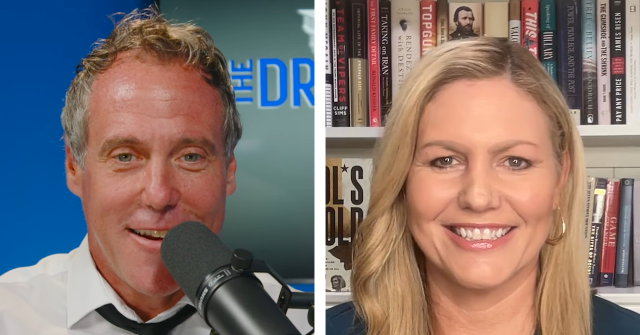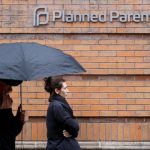Marking the first anniversary of the attempted assassination of Donald Trump in Butler, PA, the U.S. Senate released two reports on failures by the Secret Service both during and prior to the shooting. The level of incompetence shown in the reports has caused some to wonder whether Secret Service was really even trying to prevent the incident.
Award-winning reporter Susan Crabtree of RealClearPolitics has covered the Secret Service (USSS) for nearly 20 years, and the incompetence found in the reports shocked even her. Six junior agents were given suspensions ranging from 10-42 days for neglect of duty, though Crabtree is concerned that more senior people were not punished.
“It’s the classic maxim that when everyone is responsible, no one is responsible,” she tells host Eric Eggers on the most recent episode of The Drill Down. “These were all junior officers, not the supervisors who were supposed to provide experience and oversight” on that day.
“It’s alarming that they issued 10- to 42-day suspensions, but the supervisors are skating and some even got big promotions,” she continues.
“We all know that there was an [ongoing] Iranian threat that came out the week after the assassination attempt in Butler… Then we later found out that there was an arrest. The FBI arrested an individual for plotting an assassination attempt in the United States against Donald Trump. And that that individual had Iranian ties,” she notes.
Sen. Chuck Grassley’s report, just released, shows that senior USSS leaders knew and were briefed on those threats at the time. “If that’s the case, why was this the first time that the Secret Service Trump campaign detail were given a counter-sniper team, even though they had been pushing for that the whole time?”
“Why did they only drop the counter-snipers in two days beforehand?” she asks. “That is ridiculous and absurd.”
Part of the problem, she explains, is how the Secret Service prioritizes its many protectees. Former presidents rate lower, according to their operating criteria, than current vice presidents and First Ladies, which explains why many on Trump’s detail in Butler that day were temporarily assigned. Yet Trump was hardly just “a former president” as the Republican Party candidate for the presidency. Moreover, Secret Service knew there were Iranian plots to kill Trump for his first-term act ordering an air strike on Qasem Soleimani, a high-ranking Iranian general responsible for the deaths of many Americans during the Iraq war.
Trump’s campaign team had made multiple requests for three Secret Service counter-sniper teams. Only one was assigned, just two days before the rally. Everything from the discounting of known threats by Iranian-linked persons to a sighting of the shooter inspecting the area with a rangefinder hours before the event, and the fateful decision not to include the building used by the shooter within the security perimeter, all led to sharp criticism of the agency — and aroused public suspicion. Secret Service Director Kimberly Cheatle resigned after her disastrous testimony before Congress about the shooting, which killed a fireman attending the event, Corey Comperatore, and wounded two others.
Crabtree has been among the critics, writing afterwards about the Secret Service’s “CYA culture.” A service employee sent a scathing email to the entire organization decrying the “supervisors and leaders” whom he accused of refusing to listen to snipers and other “technicians” on reforms and technical innovations that could improve their ability to protect presidents, former presidents, their families, and other dignitaries under their watch.
“But our responsibility, our mission, is not about protecting an empty White House located at 1600 Pennsylvania Ave,” the email said. “It’s about preventing and stopping another JFK-style assassination, in whatever city that may be. Sadly, we have fallen short for years.”
As Crabtree shares with Eggers, the report from the Senate Homeland Security committee, released by Sens. Chuck Grassley (R-IA) and Rand Paul (R-KY) cited the agency’s “inexcusable negligence” before, during, and after the attempt on Trump’s life in what they called a “cascade of preventable failures.”
The failures were of technology, tradecraft, and imagination. An anti-drone system that could have detected the shooter’s surveillance drone was malfunctioning and not replaced, the report said. Communications between Secret Service and local police were not coordinated. The unguarded roof of a building 150 yards from the speaker’s platform was not flagged as a likely shooting location and left to local law enforcement as “outside the security perimeter.”
Meanwhile, Crabtree notes on the show, Ron Rowe, who was hand-picked by then Homeland Security Secretary Alejandro Mayorkas as acting Director after Cheatle resigned in disgrace, landed a cushy position with the Chertoff Group after he was relieved of duty, while Cheatle sits on $10 million from her previous employer, Pepsico.
Crabtree and other media outlets have reported that one of the suspended USSS agents, Myosoty Perez, was inexperienced, had been part of a top-level detail for just one year, and had never before been in charge of a big event such as the Butler rally.
She also cited a February story from the New York Post reporting on possible motives of the shooter. Doug Hagmann, whose team of six other investigators has been working the case for months and interviewed more than 100 people, reportedly conducted extensive geofencing analysis of cellphones and tablets not belonging to Crooks that were found with him at his home, at the rifle range where he took target practice, at the rally, and at Bethel Park High School where he graduated in 2022.
“We don’t think he acted alone,” Hagmann told The Post. “This took a lot of coordination. In my view, Crooks was handled by more than one individual, and he was used for this [assassination attempt]. And I wouldn’t preclude the possibility that there were people at the rally itself helping him.”
For more from Peter Schweizer, subscribe to The DrillDown podcast.

















